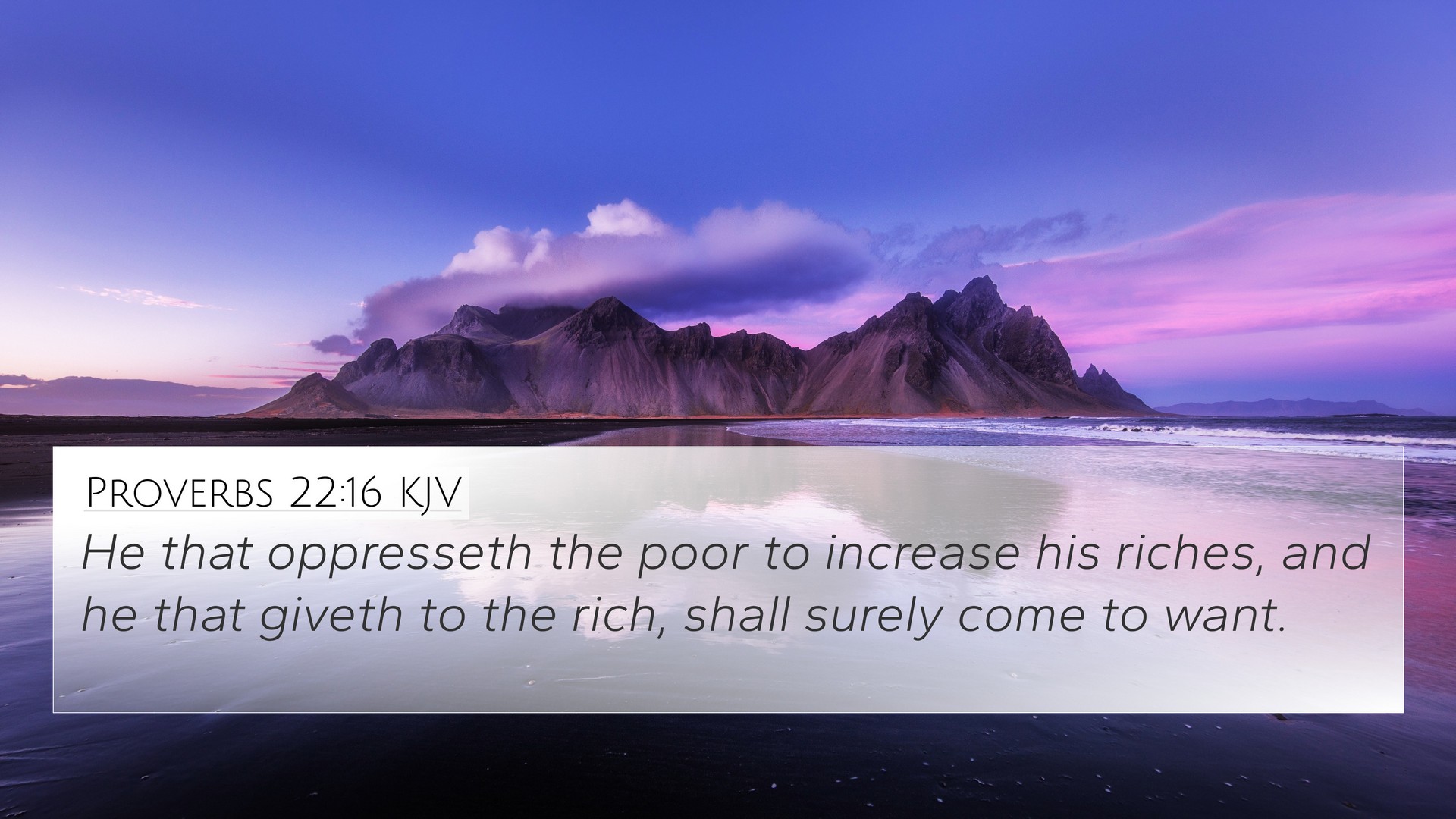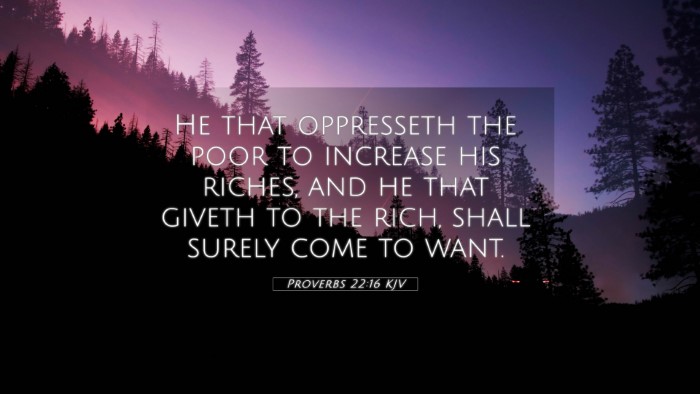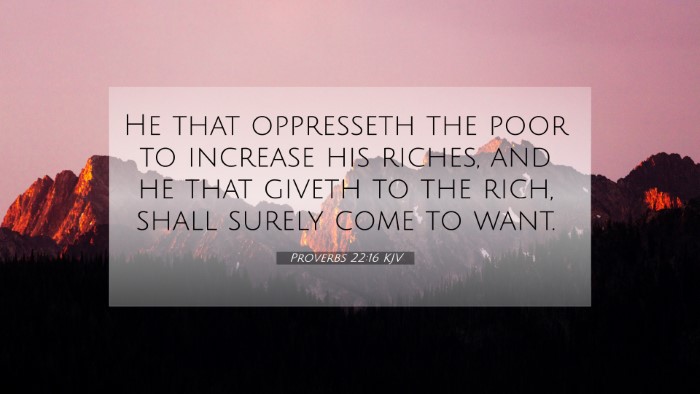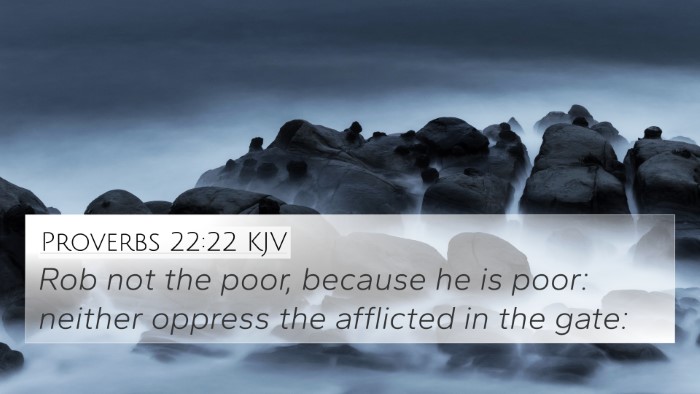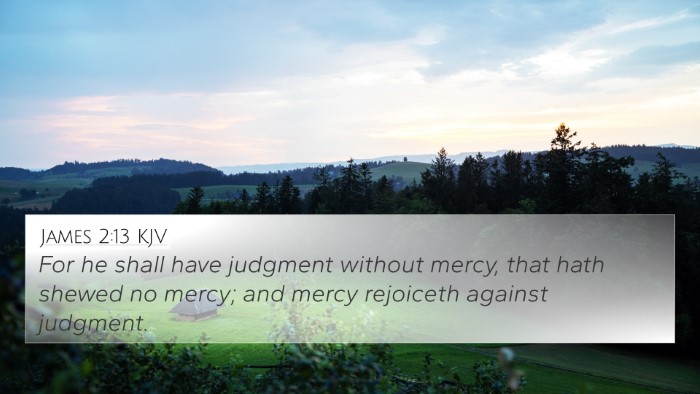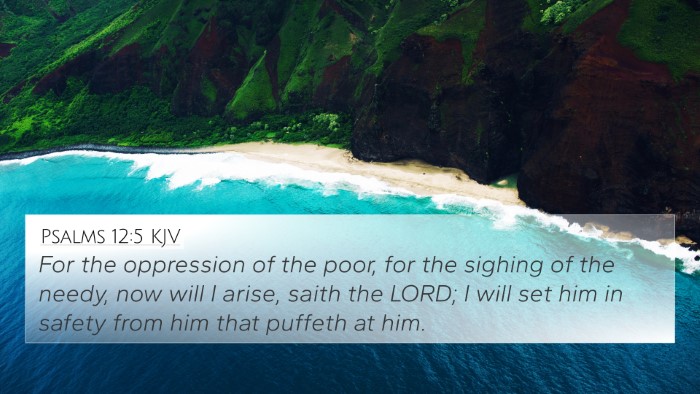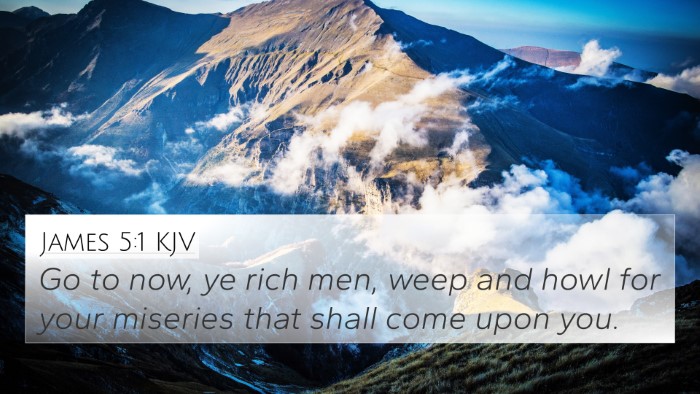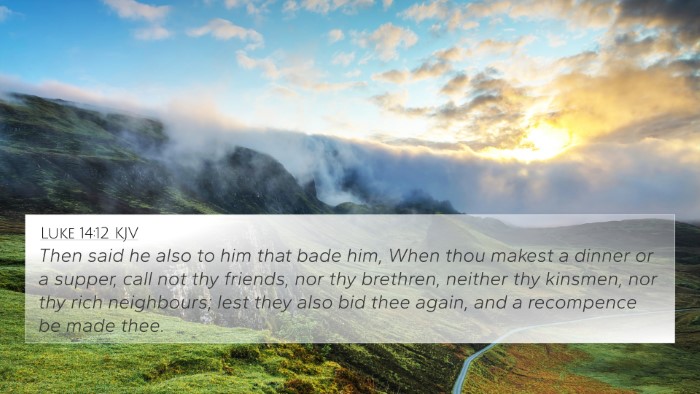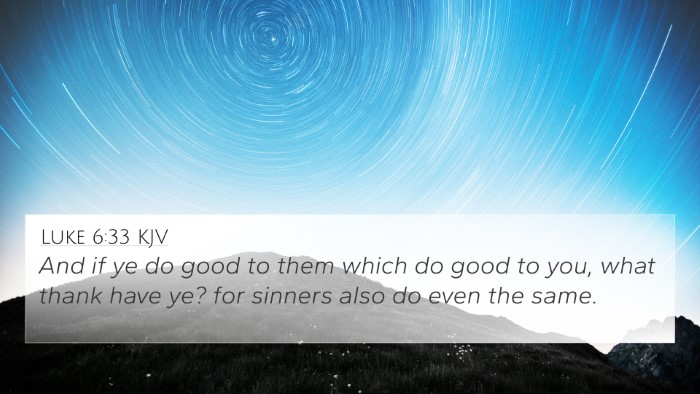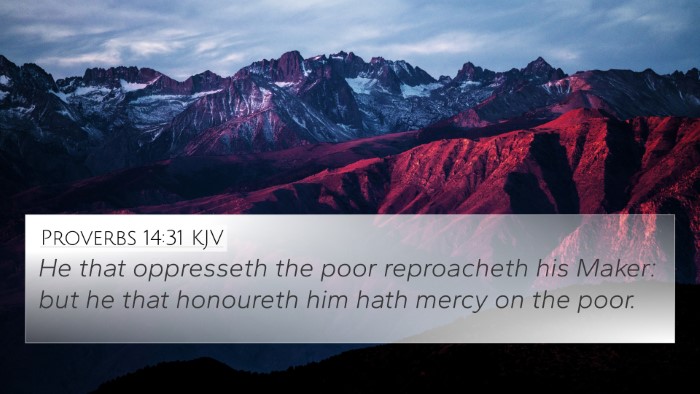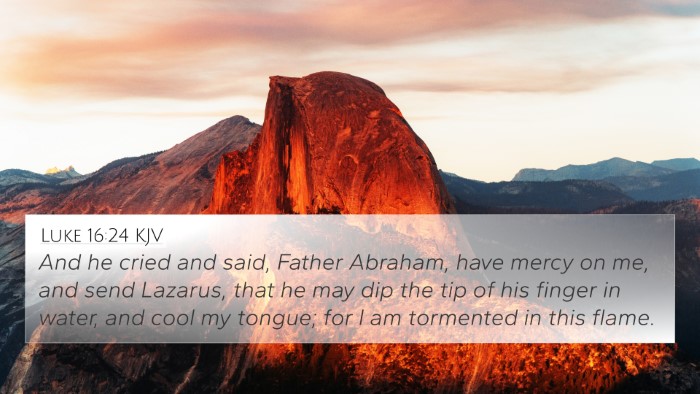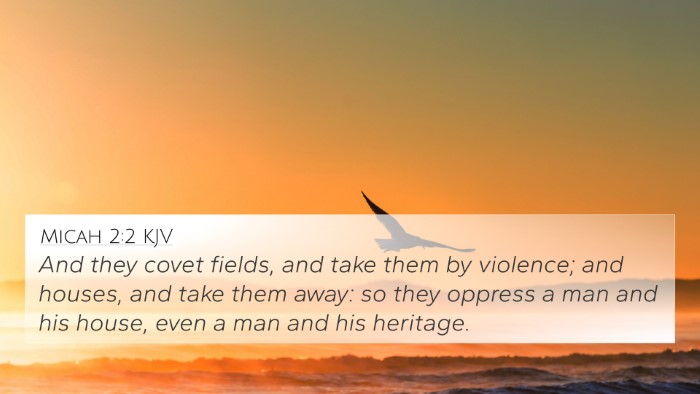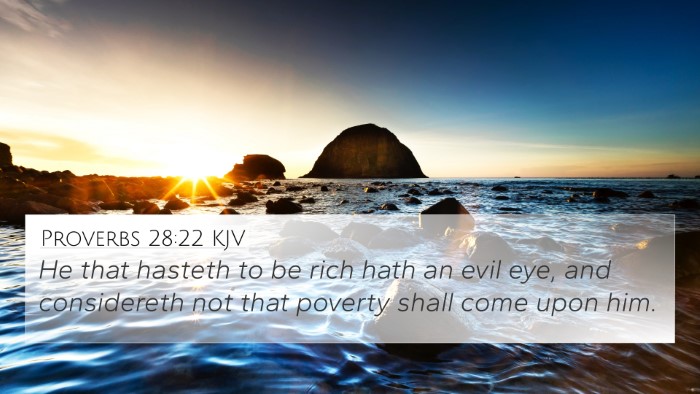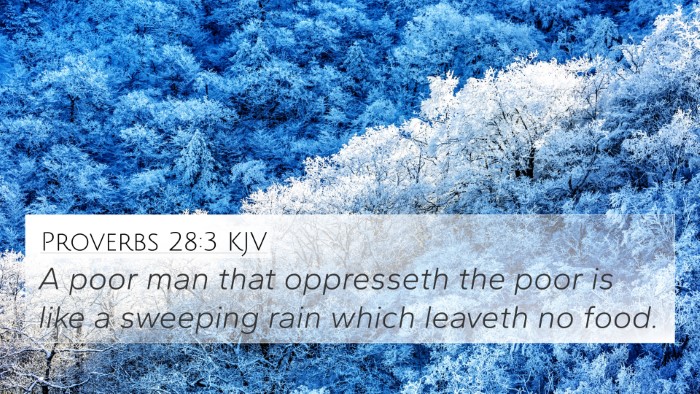Understanding Proverbs 22:16
The verse Proverbs 22:16 states:
"He who oppresses the poor to increase his riches, and he who gives to the rich, will surely come to poverty."
Summary of Meaning
Proverbs 22:16 addresses the moral implications of wealth acquisition and the treatment of the poor. It serves as a warning regarding the consequences of exploiting the disadvantaged for personal gain and highlights the futility of associating with the wealthy through unethical means.
Key Interpretations from Public Domain Commentaries
-
Matthew Henry:
Henry emphasizes the immorality involved in oppressing the poor to enrich oneself. This action is portrayed as not only socially unjust but also spiritually detrimental, guiding the oppressor towards eventual poverty.
-
Albert Barnes:
Barnes remarks on the contrast between the actions of giving to the rich and exploiting the poor. He articulates that such behaviors are misguided; those who prioritize wealth over compassion ultimately find themselves in a state of ruin.
-
Adam Clarke:
Clarke interprets this verse through the lens of societal consequences. He suggests that those who manipulate circumstances for their advantage at the expense of the needy will face inevitable doom, accentuating the transient nature of ill-gained wealth.
Cross-References
This verse connects with several others that discuss wealth, morality, and social justice:
- Proverbs 14:31 - "He who oppresses the poor reproaches his Maker, but he who honors Him has mercy on the needy."
- Proverbs 28:8 - "He who increases his wealth by exorbitant interest gathers it for him who is gracious to the poor."
- Luke 6:24 - "But woe to you who are rich, for you have received your consolation."
- James 2:1-6 - Discusses favoritism towards the wealthy at the expense of the poor.
- 1 Timothy 6:9-10 - "But those who desire to be rich fall into temptation and a snare..."
- Psalms 37:21 - "The wicked borrows and does not repay, but the righteous shows mercy and gives."
- Proverbs 11:24 - "There is one who scatters, yet increases more; and there is one who withholds more than is right, but it leads to poverty."
Thematic Connections
The overarching theme in Proverbs 22:16 is the moral imperative to treat others with justice and equity. This resonates throughout biblical teachings:
- Justice and Mercy: Highlighted in Micah 6:8, which calls believers to "do justly, love mercy, and walk humbly with your God."
- Wealth and Responsibility: The teachings in Matthew 25:14-30 reinforce that wealth must be managed wisely, without exploiting others.
- Integrity in Financial Matters: Proverbs 11:1 emphasizes that "A false balance is an abomination to the Lord, but a just weight is His delight."
Implications of the Verse
Understanding Proverbs 22:16 can guide one’s approach to wealth and relationships. The following implications emerge:
- Ethical Wealth Accumulation: Emphasizes the importance of acquiring wealth through righteousness rather than exploitation.
- Social Responsibility: Encourages individuals to support the needy and engage in charitable acts, reflecting a compassionate heart.
- Long-term Consequences: Acknowledges that actions taken for temporary gain can have detrimental long-term effects, leading to spiritual and material ruin.
In Conclusion
Proverbs 22:16 serves as a profound reminder of the ethical dimensions surrounding wealth, advocating for justice towards the poor and warning against the dangers of greed. Through the interconnectedness of scripture and the themes presented, this passage underscores the essence of moral integrity in financial dealings while providing a framework for understanding the social ramifications of one’s actions.
